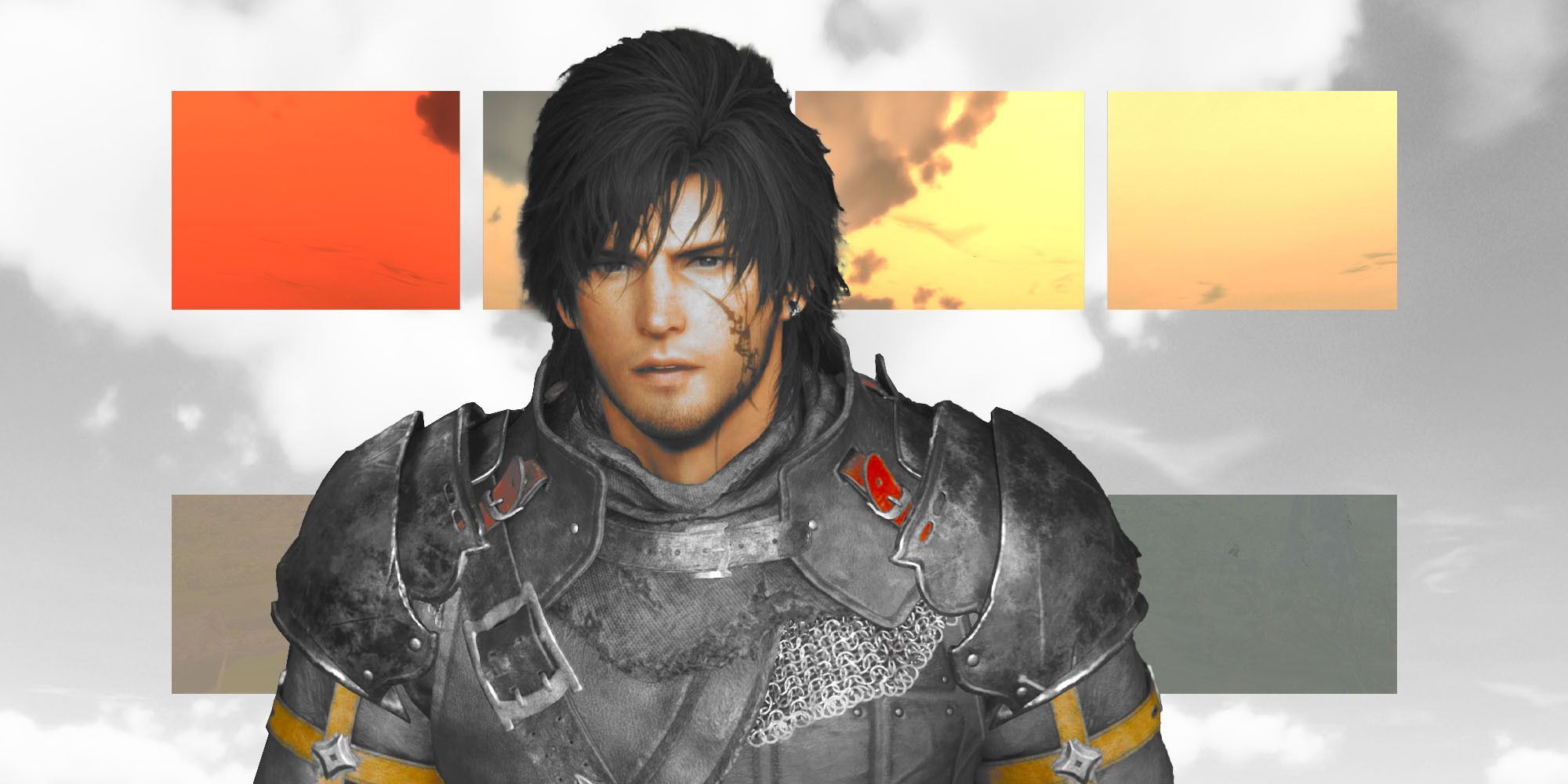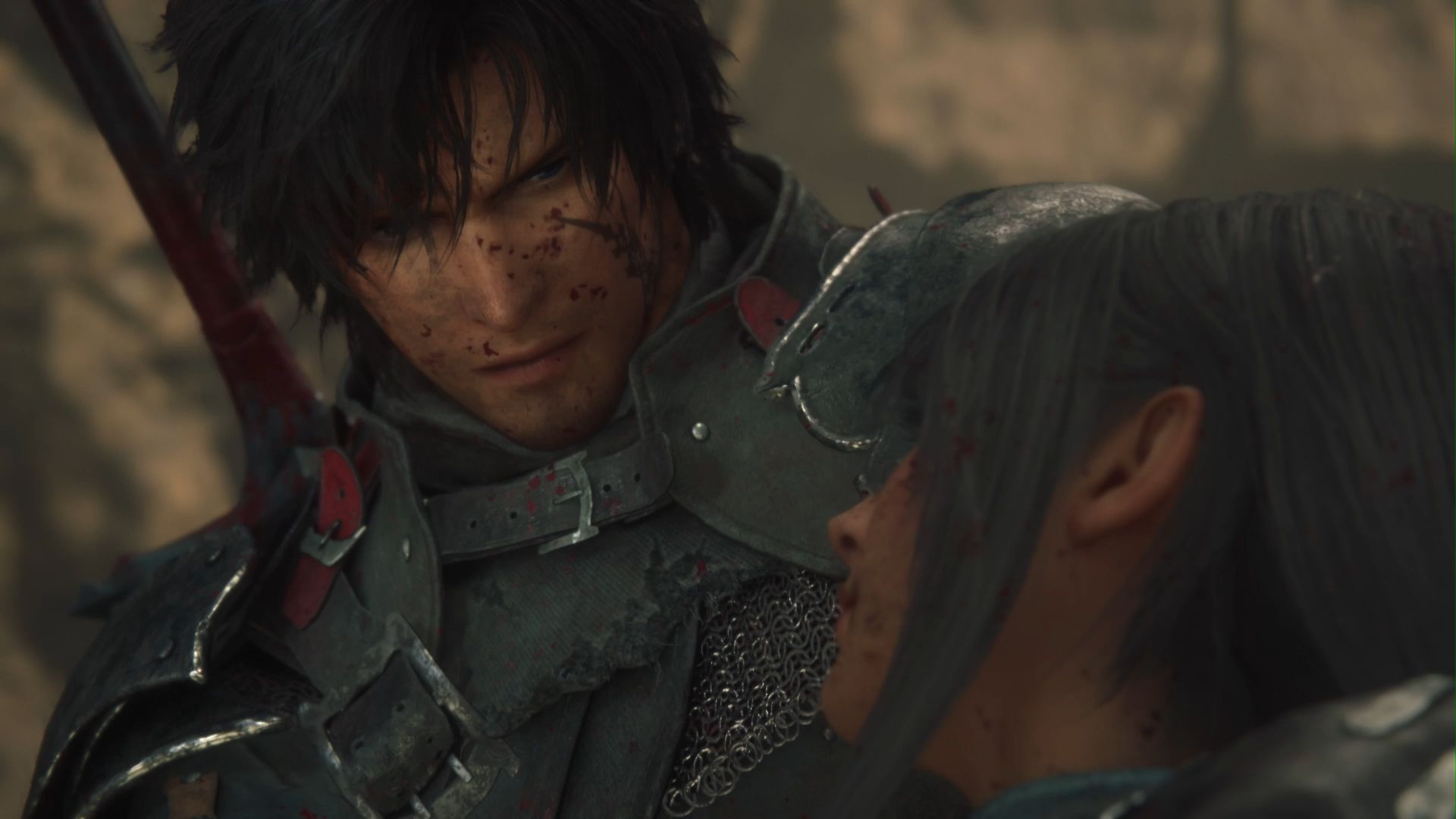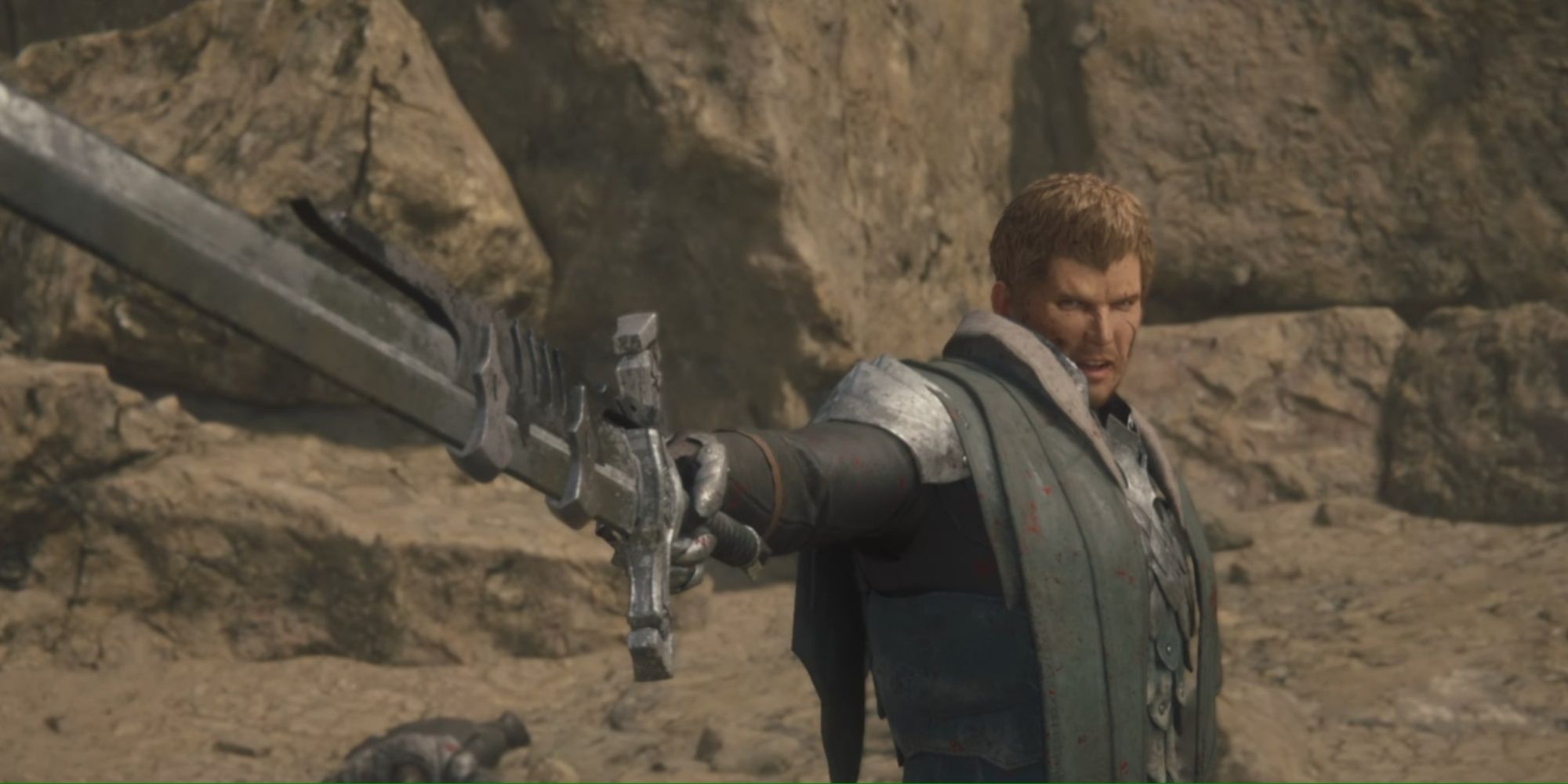Slavery is bad. I don’t think that’s a hard conclusion to draw. Throughout history, we have witnessed the most bigoted and fascist regimes on the planet use slavery as a means to eradicate or diminish racial groups, believing their own genetic hierarchy is somehow superior. We need to do all we can to fight for equality and diversity in the modern world.
While it’s largely abolished in our own society, the act of ruling over a lower class and forcing them to work remains a common trope in the media we consume. Fantasy especially explores the disgusting careers of slavers and the struggles of those beneath them. But exploring these stories can’t help but bring with them real world parallels as we continue to reconcile with our own history.
Final Fantasy 16 made headlines ahead of release for how white it is. The majority of its cast are attractive, white men and women with regional British accents. Clive, Jill, and Cid are all seemingly designed to pass as both white and Asian, but all of them are drawn into storylines concerning slavery that continually fail to consider the colour of their skin. Producer Naoki Yoshida said that the game aims to be a fairly accurate rendition of classic Western fantasy, which, in literature like The Lord of the Rings and Game of Thrones, is whiter than vanilla ice cream. Such outdated views on the genre are damaging, frequently used by right-leaning creators to justify the bigotry of their own creations. But Final Fantasy is a global hit, and it shouldn’t take such a narrow view of the world.
Diversity is a big issue, and Square’s excuses feel like lightweight justification for a damning lack of diversity. The experience eventually takes us to regions like the Dhalmekian Republic where people of colour do exist, but their facial features and overall presentation still exudes an unmistakably white aura. To hear instruments like sitars strummed along to a vast desert landscape filled by characters with all the colour of mint imperials isn’t a good look at all.
Slavery, in particular, is handled very poorly. Bearers are magical beings born with the power to conjure up spells using the aether sprung forth by Valisthea’s five mothercrystals. Instead of treating their latent skills as a blessing, the myriad kingdoms of this realm have passed laws that label Bearers as less than human, with racially charged language often being used to distance them from what Valisthean society considers normality. They are marked with tattoos that tell every person they meet that they deserve to be treated as lesser, and are nothing but tools to be abused.
Centuries of normalised slavery have made Bearers complacent to their own existence, who for some reason seem indifferent about fighting back against their oppressors despite having magical powers and the numbers to enact social change. All of them are born into servitude and understand that to go against the wishes of their masters equals death. Not to mention that an overuse of their power eventually turns them to stone, leading to Bearers being treated as disposable objects who will become useless in the end.
You come across countless examples of Bearers being punished for not doing their jobs properly throughout Clive’s adventure, when in reality they’re tired and quite literally working themselves into an early grave. Final Fantasy 16 presents slavery as irredeemably bad, but so many of the good people you meet seem to treat freeing Bearers as a bizarre concept even when their own moral compasses point towards a need for liberation. Therefore, the cycle of Bearers continues regardless, and it isn’t until Cid comes along that things begin to change.
Cid leaves his position as Commanding Officer of the Dhalmekian Republic and founds The Hideaway because he believes in a world where people - Bearers included - are free to live and die on their own terms. They aren’t just struggling to survive, they’re striving to conjure up a life worth living once it’s all over. Countless quests and stepping stones across the main story have you liberating towns and even piecing together new ones where Bearers are free to settle away from the shackles of their masters. Many are ignorant to independence at first, and need nudging in the right direction in order to embrace their newfound freedom.
It’s hard to watch, but almost becomes heartwarming in its hamfistedness. At the same time, there are several instances where Bearers are liberated across regions, but it doesn’t seem that society is shifting into a new status quo, even as the magic they continue to rely on dwindles. Bearers are displaced and have nowhere to go unless we assist them, and it feels even more hurtful to suggest that slaves are powerless to enact change on their own destiny. When Bearers begin gathering at The Hideaway and across other small towns they begin undergoing procedures to burn away the marks strewn across their faces, which a side quest describes as an excruciating act which even results in death for those unable to withstand the pain.
A couple of early side quests set outside the Imperial Capital follow Clive as he helps a few local nobles find missing Bearers. A little girl describes a Bearer like she’s an animal she plays with, complaining that she has recently gone missing and will be punished if she doesn’t come back. You seek her out, only to find a rotting corpse behind a nearby windmill.
The young girl is distraught, but believes what is lost can easily be replaced until Clive makes it clear the Bearer is a human being with desires and fears just like the rest of us, with centuries of prejudice deliberately obscuring that harsh truth because facing it would force Valisthea to change. As the mothercrystals are decimated our everyday reliance on magic goes with it. Fire, water, and the majority of chores we expect a Bearer to perform are now bouts of manual labour that slave owners must now carry out on their own. It’s heavy-handed, and sadly plays second fiddle to fighting god in a melodramatic final encounter instead of being wrapped up with similar circumstances.
This liberation should have been a main drive of the core narrative instead of a tertiary discussion, even more so when all of our reasons for wiping out the Mothercrystals relate to ridding Valisthea of blight and freeing its people. Final Fantasy 16 wants to be an epic anime adventure on the one hand, while on the other it seems determined to explore powerful issues like slavery and doesn’t do them justice. Tie in the game’s own lack of diversity, and we only complicate matters further.
Final Fantasy 16 moves the series forward in a lot of ways, and that includes approaching emotional complexity in its storytelling. Deciding to tackle issues like slavery is undoubtedly a part of that, and it’s mostly powerful in its execution. Yet it’s also a heavy-handed exploration of the idea that discounts our own history for a fantasy clone that is desperate to talk up big ideas without enough appropriate world building to uphold it.
Clive Rosfield could have easily embarked on a journey to rid Valisthea of magic and usurp his homeland’s reliance on magic and monsters without a clumsy reliance on slavery tropes. But Final Fantasy 16 leans into this and can’t avoid the awkward conversations regarding race that wouldn’t exist if its own diversity wasn’t so stilted.




